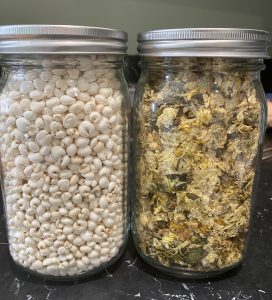
In spite of thus far boasting minimal over-heated days that inspire associations of barbecues and the beach, Summer is upon us
At home we joined our community pool, which is supposedly very popular and only a short walk from our home, but are yet to throw the baby in, as the only days that temperature might have permitted have been of coinciding rainstorms. The humidity just recently arrived, which for me is a bit of an ironic breath of fresh air, as a New York (New Jersey) summer sans the dense filth of 90-degree oppression on train platforms would resonate as just another bittersweet symptom of global warming.
Chinese Medicine appropriately labels this as “damp heat,” a very serious pathogen that genetically applies to yours truly and is nothing to be snoozed at. When dampness, or pathogenic body fluids mix with inflammatory heat they form an often impenetrable pathogen the Chinese label as “phlegm,” and “the cause of 1000 diseases.”
“Phlegm” in our medicine refers to not only that of the lungs and sinuses, but also the plaques that create arteriosclerosis, polyps, Alzheimer’s Disease, fatty liver, and I suppose about 1000 more illnesses. If someone is genetically susceptible to heat, left untreated their own dampness will inevitably transform into “damp heat” and become that much more difficult to resolve. Think many cases of autoimmune disease, cancers, and diagnoses of similar gravities.
Typically, the American trademarks of summer are in direct opposition to Eastern Medicine’s advice for mitigating the side effects of the external damp heat. Red meat and barbecue are sources of damp heat, as is alcohol—especially beer—spicy foods, or shellfish. As one of a family of many gout sufferers I must pick my spot wisely to indulge in one of my favorite summertime meals, oysters and some snobby, local IPA. At the least I always attempt to resolve such indulgences’ side effects on their backends.
More cooling foods and drinks that should be ingested liberally include watermelon, cucumber, celery (or celery juice), lemon, radishes, and of course chamomile or mint teas. Other recommended food grade medicinal teas are ju hua (chrsyanthemum flower) and yi yi ren (job’s tears/pearl barley), both of which should be available at any Asian market.
While the former is great for clearing heat in the upper portion of the body—think possibly headaches, summer dizziness, styes, and any issues of redness around the eyes—the latter is directed more to the intestines and urogenital microbiome. This time of year people are more prone to hyperhidrosis below the belt, swelling of the limbs, UTI’s, hemorrhoids, or stickier stools. If you wish to live in accord with the season and do better than low-quality store-bought herbal teas, I recommend getting these ingredients for tea at home.
30 grams of job’s tears + 10 grams chrysanthemum + 8 cups of water.
Boil and simmer for 40 minutes, drain out the herbs, and drink the slightly bitter, earthy tea. If you cannot measure grams and/or want to make a full pitcher for the week it’s fine to eyeball the measurements, simply aiming for a 3:1 ratio of job’s tears to chrysanthemum. In Chinese Medicine the bitter flavor is indispensable at clearing heat from the body, and recommended that westerners acclimate our palettes to it.
Finally, each season brings its own recommendations around our circadian rhythms. Summer corresponds with the fire element, which corresponds with the heart organ. The hours assigned to the heart are 11am-1pm, which for the next few months makes this an optimum time for 15-30 minutes of rest and relaxation. I realize most people, myself included, are usually quite busy at this time, but whenever possible it is ideal for heart health to take a pause, to close our eyes, lie down for a short meditation, and/or book your acupuncture visits accordingly (this from one of my most respected teachers, Dr. Henry McCann).
Please don’t get me wrong. The experience summer barbeques with friends is, in my opinion, one of life’s finest treasures, and should never fall by the wayside. However, it is advisable to eat mindfully the remaining 90% of our time, and appropriately to always counterbalance our indulgences on the day after.


